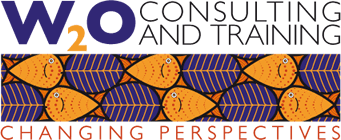Unconscious bias training is very popular. Every organisation that is keen to take action on diversity and inclusion seems to start with unconscious bias training.
Personally I have never been a fan of those programmes, and scientific evidence is now indicating that I am right and that unconscious bias training is unlikely to have the desired impact. Participants in the training do become more aware of their unconscious biases, but they don’t change their behaviour.
Why Unconscious Bias Training Does Not Work
Linked to negative feelings
The reason I have never been a fan of unconscious bias training is that – as a trainer – I know that positivity works. Learning sticks when people laugh, feel good and have exciting experiences. However, unconscious bias training typically makes participants feel guilty. Especially white men of course, as all biases seem to be in their favour.
Doesn’t lead to action
I also find that unconscious bias programmes don’t lead to action. In most unconscious bias training programmes, people learn to ‘be aware’ of their bias when taking decisions. But no concrete actions are suggested, and it’s therefore very easy for participants to forget about it and continue the same old behaviour.
Awareness is not the same as behavioural change
In her excellent book, ‘What Works’, Iris Bohnet describes how most unconscious bias training programmes are not evaluated systematically. As a result there is very little valid research on the impact of the programmes. In the research that is available unconscious bias training is shown to have a limited impact. It does make people more aware of their bias, but studies show that even when people are aware of their bias they can’t suppress it.
In fact in some cases it is shown to make the bias worse. This is very human and is called moral licensing. I do it too. I have just started a fitness programme, and have noticed I allow myself more daytime snacks now. I feel good about myself, so I give myself a moral license to indulge. With unconscious bias training you see something similar. People think, ‘Oh well, I have done the unconscious bias training – ticked that box, done my bit for diversity – so now I can go back to normal.’
What Works Instead of Unconscious Bias Training?
What does seem to work better is a more positive, empathy-based and action-oriented approach. Iris Bohnet suggests this in her book, but does point out that there is only some scientific evidence for this so far. Personally I believe in it, as I have seen it work with my clients. An effective approach to a gender awareness or diversity training follows these steps:
- Raise awareness of the issue by showing statistics (e.g. gender pay gap). Make sure you supplement that by telling stories of women’s experiences. The stories help people to empathise; to ‘walk a mile in someone else’s shoes’. The aim is to get people to question their current strategies and become curious about alternatives.
- Recognise differences between men and women and look at the benefits of those differences. As this is based on a positive approach it helps to open up people and creates excitement about what could be.
- Review current practices, flag where they may go wrong or miss out on opportunities and suggest alternatives. Make those alternatives part of the normal process.
Then, when implementing, remember that – interestingly – people don’t have to change their beliefs, they just have to change their behaviour.
I offer customised workshops and training programmes to help participants change their behaviour with regards to gender, and they follow the steps above. Do check them out here.



Author: Inge Woudstra
Would you like to know more or have a question? I am always happy to have a chat to discuss your needs. Why not drop me a line or pick up the phone? Call me at 01372 457 907 or Just contact me to discuss your requirements by e-mail.I can help you recruit, retain and advance women, and typically work with organisations in tech and engineering.
Or just check out my book 'Be Gender Smart - The Key to Career Success for Women'